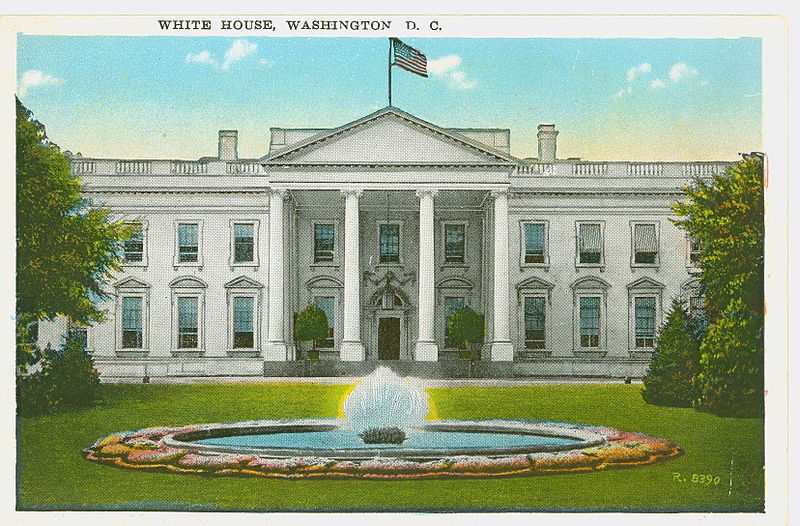 Right through its history, America has not hesitated to use force under the pretexts of principles, sovereignty and justice. American military intervention in world affairs has risen drastically since the end of the Second World War. The period following the Second World War saw America assume the role of a superpower that headed the western coalition in what was a bipolar world. In a way, the nuclear bombing of Japan was the first of its international digressions and the ongoing Iraq quagmire the latest. Since the collapse of Soviet Union, America has had at its disposal the most potent military force. Its economic structure complements military spending; leading to a military industrial complex. The 2003 Allied invasion of Iraq was not an exception. Neither was United States’ role in the ugly end to the Second World War.
Right through its history, America has not hesitated to use force under the pretexts of principles, sovereignty and justice. American military intervention in world affairs has risen drastically since the end of the Second World War. The period following the Second World War saw America assume the role of a superpower that headed the western coalition in what was a bipolar world. In a way, the nuclear bombing of Japan was the first of its international digressions and the ongoing Iraq quagmire the latest. Since the collapse of Soviet Union, America has had at its disposal the most potent military force. Its economic structure complements military spending; leading to a military industrial complex. The 2003 Allied invasion of Iraq was not an exception. Neither was United States’ role in the ugly end to the Second World War.
Noted political commentator Ivo Daalder raises some valid questions regarding the legitimacy of the invasion of Iraq. Daalder argues that the invasion was illegitimate on two counts: 1.there was no provocation from Iraq and 2.the United Nations Security Council did not approve of the war. Military actions of countries such as Iran and North Korea were condemned by the U.N. and the United States alike. In the same vein, the dropping of atomic bombs over Hiroshima and Nagasaki also don’t meet basic humanitarian standards. De-classified information from the period suggests that there was no significant threat from Japan at the time of these bombings. Hence, it could be stated that the United States deserves the worldwide condemnation that it elicited then and continues to elicit now (Gaddis, 2005).
On the eve of the American invasion of Iraq, the German Foreign minister Joschka Fischer openly questioned American intentions behind the intervention. Such doubts were expressed by other members of the European Union as well. The differences were not just at the diplomatic level. A public opinion poll conducted on the eve of the war revealed how an overwhelming majority of people in Europe disagreed with the American official line. More importantly, they believed that the war was illegitimate. The public sentiment in the United States was exactly the opposite. Some analysts point that the divide in public opinion is nothing more than a reflection of the prevailing world order. Nevertheless, such a simplistic reason is insufficient in explaining a pervasive set of beliefs and attitudes. Similar sentiments were expressed by allies and rivals alike with regard to the situation in Japan in 1945. Hence, some historical parallels could be discerned (Anderson, 2005).
The Coalition of the Willing’s failure to properly plan and execute its “liberation” of Iraq has led to a complete breakdown of law and order in the country. The insurgency following this collapse has affected the Iraqi civilian population more than the coalition troops. This outcome is in contradiction with the mission of “liberating the people of Iraq”. The setting of the Iraqi Governing Council to restore the situation has proved to be a failure. The exercise of setting up a democratically elected leadership in Iraq is perceived as a sham by neutral observers. Similarly, the victims of the nuclear bombardments in Japan were mostly civilians. So, in essence, the present situation in Iraq is comparable to the post-bombardment Japan (Anderson, 2005).
It is an open secret that the middle-east region is of strategic importance. Any country with aspirations to dominate the world will have to have “control” over the region’s resources (read oil) and governments. The United States, the only superpower at the time, was not above this ambition. Noted American intellectual Noam Chomsky points to glaring misinformation released by the White House in his recent scholarship. In Chomsky’s own words,
“The US wasn’t upholding any high principle in Iraq, nor was any of its allies. The reason for the unprecedented response to Saddam Hussein wasn’t his brutal aggression — it was because he stepped on the wrong toes. Saddam Hussein is a murderous gangster — exactly as he was before the War. He was even our friend and favored trading partner at one point in time. His dictatorship of Iraq comprises many atrocious acts, but well within the range of many similar crimes conducted by the US and its allies, and nowhere near as terrible as some.” (Chomsky, 2004)